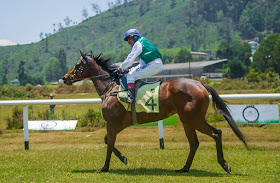The shorter the price, the better chance of winning.
Statistically that is correct but what about value?
Phil Bull, the founder of Timeform, said that an odds-on shot could be value. He made his betting pay as a professional gambler in the late 1930s. By all accounts Bull was one of the most influential gamblers we have ever seen in the United Kingdom.
I think every gambler has bet odds on. It seems a good idea at the time. That’s betting odds against, meaning your stake is bigger than your potential win. Obviously you get your stake back. For example, you bet 4/6f. Let’s set the scene. You wander up to Honest John Turf Accountant at Great Yarmouth who loves to shout: ‘Money without work!’
You say: ‘£600 to win £400’.
When it wins, you walk away with £1,000.
A Cockney Geezer shouts: ‘A bag of sand!’
I remember years ago when my brother and I first started to bet. We specialised in the niche of two-year-old horse racing and compared to most of the population we were exceptional. There is no replacement for hard work and we put in the hours to know the form book inside out, had insight to the best unraced horses in training and were a couple of anoraks if you had ever met a pair.
We went for a day’s racing at Great Yarmouth.
Always a lucky track.
It was back in 1989. We were just nineteen years old. I say we, because my brother and I are twins.
It was 19th July.
The first race on the card: 2:15 Yarmouth – EBF Cotman Madan Fillies Stakes over 7f. Going: Firm.
We had our eyes on the two-year-old race.
That was the day we’d dip our toe into backing odds on.
Henry Cecil (pre knighthood) trained a filly in the old maroon and white silks of Sheik Mohammed, called Wajna. Not only was she priced 1/2f but it was her debut. Never mind, we had Steve Cauthen in the saddle.
We’d heard he had a stopwatch inside his brain.
‘It bloody needed to be decent at 1/2f.’
Tony went up to some random bookie and bet £100 to win £50. We felt very confident before placing the bet but as soon after we questioned whether it was a good idea at all. In fact, if we could have sidled up to the bookie and asked politely for our money back we would have done!
It was too late.
At that time, £100 was a lot of money to us. Thinking all these years on, I can safely say I would never have placed that bet now. Was it value at those prohibitive odds? You can make your own mind up.
I know what you are saying: ‘It depends on whether the horse won or lost.’
Too right.
We had seven horses in opposition. Half of the field were priced at odds of 25/1 or bigger. The second favourite priced 9/2 was another debutante called Varnish, trained by Lord Huntingdon, in the ownership of The Queen. Ben Hanbury had the third favourite named Lady Wishing Well (the name itself made me think I was tempting fate) priced 7/1. While Sir Michael Stoute had the last of the half fancied horses priced 10/1.
It was minutes before the off.
I felt slightly ill. Thoughts kept flickering through my mind from our horse winning impressively to getting stuck in the stalls. Back in the day, TV adverts promoted Hamlet cigars, where someone in a moment of peril or impending disaster would find comforted enjoying a pleasant smoke. I had visions of either Steve Cauthen or Wajna emerging from the starting stalls in a cloud of smoke.
Cigar smoke.
‘Happiness is a cigar called Hamlet. The mild cigar...’
Before we knew it, the race had started in earnest and Wajna was leading. Every moment a horse you backed is leading is pure pleasure. The sun is shining, the seagulls are calling your name, and the ice cream man is even offering an extra flake in your 99. Visions of Sir Winston Churchill with his victory v.
Honest John is shouting: ‘Money without work!’
However, that winning feeling was threatened at the two-furlong pole as Varnish, under an inspired ride from Tony Ives, threw down a challenge. I’m not sure if my brother looked at me first or me him but we both had a panicked look and pale complexion. This was in the days before the big screens and without binoculars 400m looked a long way in the distance. I’m not sure who the commentator was that day but I suspects they had bet on Varnish as they gave the impression it was very close.
Coming into the final furlong we could see Wajna held a length advantage but ridden quite vigorously by Cauthen. We were shouting like a couple of girls. The crowd was screaming. And I’m pretty sure I saw Henry Cecil shout in triumph as Wajna crossed the line to win by a length.
To be honest, I was just pleased the race was over.
If the race had been one mile six furlongs I think one of us would have been calling for the St John’s Ambulance or a dose of Ketamine (horse tranquilliser, or, at least, a couple of mild cigars).
Tony went to the bookmaker and collected £150.
We looked at each other and said: ‘Never again.’
Talk about ‘buying money’.
As it turned out Wajna (just like Phil Bull would have said...) was a value bet!
Thank the Lord that day went to plan.



